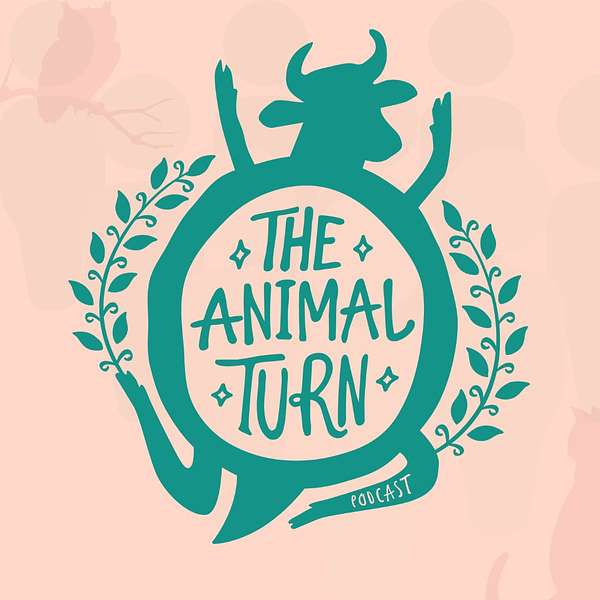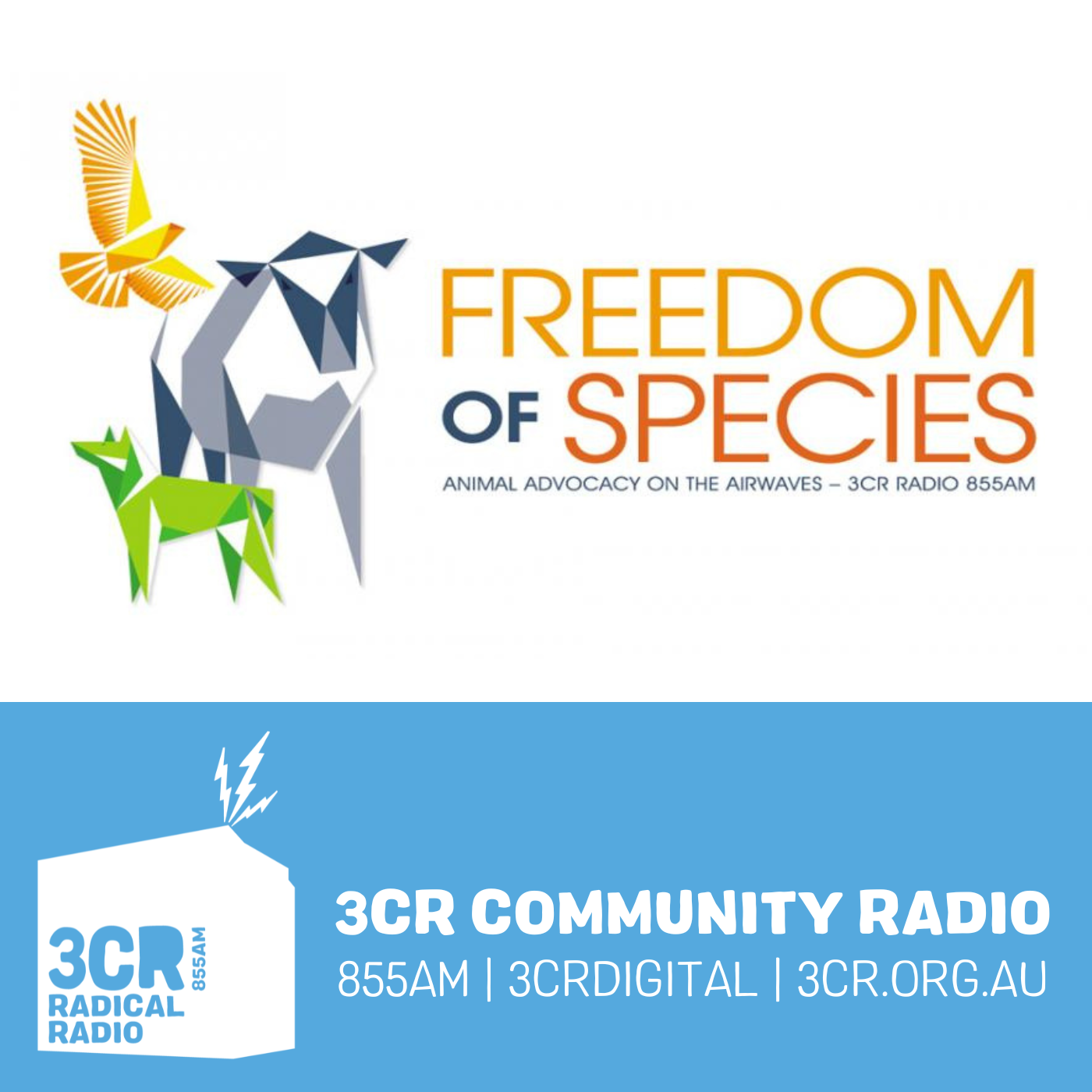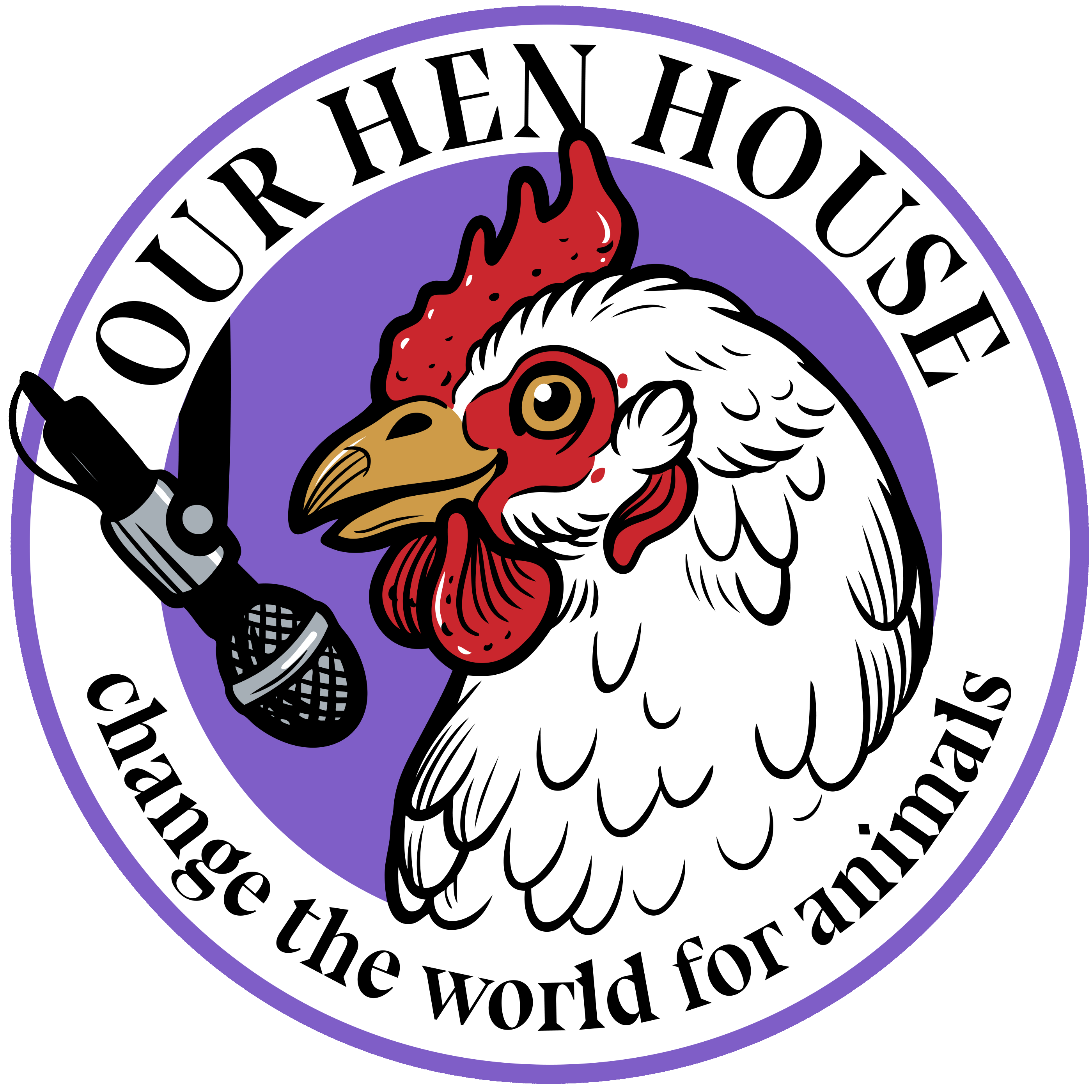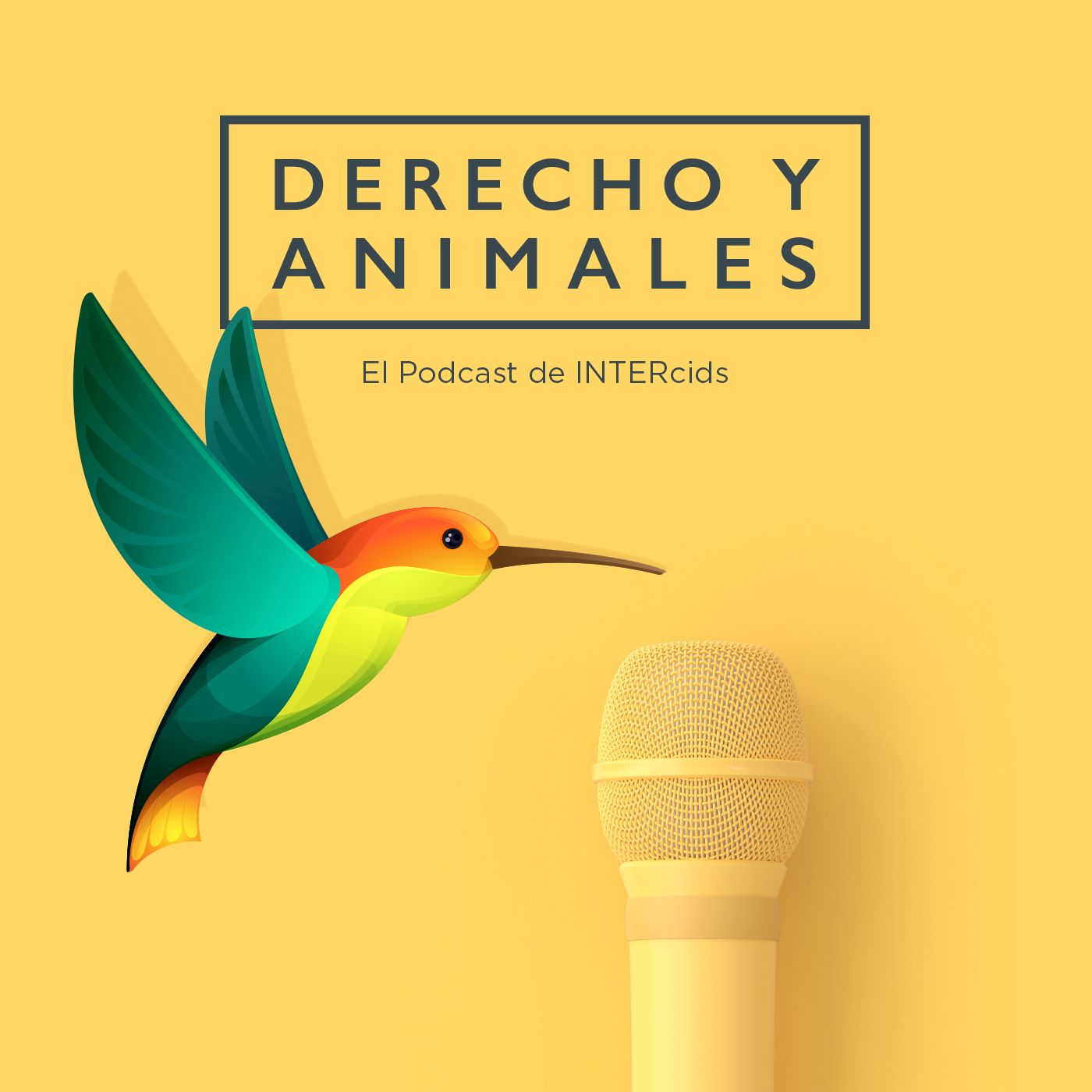
The Animal Turn
Animals are increasingly at the forefront of research questions – Not as shadows to human stories, or as beings we want to understand biologically, or for purely our benefit – but as beings who have histories, stories, and geographies of their own. Each season is set around themes with each episode unpacking a particular animal turn concept and its significance therein. Join Claudia Hirtenfelder as she delves into some of the most important ideas emerging out of this recent turn in scholarship, thinking, and being.
The Animal Turn
S6E2: Cosmopolitanism with Angie Pepper
In this episode, Claudia talks to Angie Pepper about cosmopolitanism. Angie explains how despite cosmopolitans having an expansive view of justice, animals are rarely accounted for. They discuss the challenges of including animals in cosmopolitan thought and mull over what animals might be entitled to.
Date Recorded: 24 August 2023.
Angie Pepper is a Senior Lecturer in Philosophy at the University of Roehampton in London. Angie's philosophical background is in contemporary political philosophy, applied ethics, normative ethics, and feminist philosophy, and her recent research focuses on what we owe to other animals. She has published papers on the place of nonhuman animals in our theorising about global justice, and on what we owe to them as a matter of climate justice. She has also defended the following claims (among others): that sentient nonhuman animals have a right to privacy, that few nonhuman animals are political agents, that sentient nonhuman animals have a right to self-determination, that non-euthanasia killing in animal shelters is sometimes morally permitted, and that we shouldn't support zoos. Angie's latest projects focus on the normative significance of nonhuman animal agency; in other words, what other animals do and why it matters morally, socially, and politically. She is especially interested in whether domestication is compatible with animals' interests in self-determination and the demands of justice. Angie is a regular contributor to Justice Everywhere. You can learn more about Angie’s work on Research Gate.
Featured:
- Beyond Anthropocentricism: Cosmopolitanism and Nonhuman Animals by Angie Pepper
- What comes after entanglement by Eva Haifa Giraud
- Dominance and Affection: The Making of Pets by Yi-Fu Tuan
- Animals as Persons: Essays on the Abolition of Animal Exploitation by Gary Francione
Thank you to Animals in Philosophy, Politics, Law and Ethics (A.P.P.L.E) for sponsoring this podcast; Gordon Clarke (Instagram: @_con_sol_) for the bed music, and Jeremy John for
A.P.P.L.EAnimals in Politics, Law, and Ethics researches how we live in interspecies societies and polities.
iROAR Network
iROAR brings together podcasts that aim is to make the world a better place for animals.
Disclaimer: This post contains affiliate links. If you make a purchase, I may receive a commission at no extra cost to you.
The Animal Turn is hosted and produced by Claudia Hirtenfelder and is part of the iROAR Network. Learn more on our website.
- Leave a Review on Podchaser
- Check out The Animal Turn Merch.
- Support us on Patreon, Buy Me a Coffee, and Buzzsprout.
00:00 - Introduction
- It’s season 6 and this season we are focusing on animals and politics
- Angie Pepper is a Senior Lecturer in Philosophy at the University of Roehampton in London. Angie's philosophical background is in contemporary political philosophy, applied ethics, normative ethics, and feminist philosophy, and her recent research focuses on what we owe to other animals. She has published papers on the place of nonhuman animals in our theorising about global justice, and on what we owe to them as a matter of climate justice. She has also defended the following claims (among others): that sentient nonhuman animals have a right to privacy, that few nonhuman animals are political agents, that sentient nonhuman animals have a right to self-determination, that non-euthanasia killing in animal shelters is sometimes morally permitted, and that we shouldn't support zoos. Angie's latest projects focus on the normative significance of nonhuman animal agency; in other words, what other animals do and why it matters morally, socially, and politically. She is especially interested in whether domestication is compatible with animals' interests in self-determination and the demands of justice. Angie is a regular contributor to Justice Everywhere. You can learn more about Angie’s work on Research Gate.
03:12 – Cosmopolitanism and the Human Subject
- PhD on feminism and global justice, interested in how gender justice would alter theorizations of global justice. Became concerned with the anthropocentricism in that literature.
- Feminism and Political Justice, Gender and Justice
- Feminists should be cosmopolitans, and cosmopolitans should be feminists
- Cosmopolitans think that all individuals globally are subject to moral concern
- “To sum it up, cosmopolitans think that all individuals globally are the primary subjects of moral concern and that we have principles of justice that are global in their scope. So we shouldn’t think about justice as being something that just pertains between citizens within one nation but rather we can think about justice as being something that is global in reach. And, in much of the literature, with only a couple of exceptions, the primary units of moral concern are assumed to be human.” – Angie
- Toward the end of Angie’s PhD she started thinking about why we only think about humans when it comes to global justice.
- Justice is about protecting well-being and so we should be concerned about how our actions and institutions impact animals.
- In cosmopolitan literature there are anthropocentric biases, where humans are the dominant beings of moral concern
- Found her way to animal studies from feminist and disability studies.
- Thinking about personhood as a moral category and the critiques of it being exclusionary.
- Most cosmopolitan have a very expansive conception of the human subject, including children, but there is a species bias in that literature.
07:35 - Cosmopolitanism and Spatial Inclusion
- Do Cosmopolitans believe everybody has a claim to some time of entitlement and to be treated with dignity?
- What comes after entanglement by Eva Haifa Giraud
- If you want to be principled it might necessarily involve exclusions – Claudia
- For cosmopolitan everybody’s interests matter, and no one should be excluded because they happen to live somewhere else.
- Cosmopolitans believe that everybody’s interest matters despite where someone lives, what race they are, what species they are
- When we are thinking about who is the community of subjects who we should be concerned with, for cosmopolitan it is everyone.
- Is the UN an example of cosmopolitanism?
- Primarily interested in moral cosmopolitanism which is a claim about the moral status of individuals but political cosmopolitanism is different because it is more concerned with institutions.
- Is it possible to have moral concepts of justice at a global scale or only at the community level? Is it even possible to have principles of justice that are global in scope? Some believe justice only gets going in political communities and that there are no global political communities.
- Thinking about all sentient animals within the principles of global justice
11:25 – Justice
- Justice is a concept where everyone thinks they know what it means but it is really difficult to define
- How are you locating cosmopolitanism? Who is an actor? Or is it about thinking about how politics is structured?
- It’s a question about whether justice is something that can only be obtained between co-nationals
- One traditional definition of what justice is comes from John Rawls, he was interested in distributive justice at thee level of nation states and is concerned with the distribution of benefits and burdens. It shouldn’t be that some are more burdened than others.
- “It’s about making sure that the benefits and burdens of our social cooperation are shared fairly” – Angie
- Sympathetic to that understanding but justice is also about inequality and whether the inequalities that exist are fair. If it is not, we need to rectify it.
- Angie believes this is part of understanding justice, but it is also about understanding inequality
- “When we are thinking about justice we are just trying to make sure that everybody has got what they are entitled to and that if there are any inequalities those inequalities are not unjust, or unfair” – Angie.
15:00 – Well-being and Suffering
- Beyond Anthropocentricism: Cosmopolitanism and Nonhuman Animals.
- What’s the cause of this suffering? Is it institutional? We need to ask these questions about what is governing our social lives
- “The ability to be well” – Claudia
- We want to know the cause of the suffering and whether it is institutional and a product of the way we have organized our social worlds
- We need to diminish the possibilities of suffering, we can’t eradicate it but we need to understand it and reduce it.
17:20 – Relational and Non-Relational Cosmopolitanism
- For Rawls when we are thinking abut justice we are interested in the distribution of benefits and burden, you have a jut society when they are distributed fairly.
- Relational cosmopolitans transfer justice to the global level because we are locked into schemes with others at a global level. Globally there is a system of inter-dependence in terms of goods and institution. Think about climate change, what individual countries are doing impacts individuals elsewhere in the world. There are regional and global institutions that are governing our lives meaning that there is something beyond the level of the state. “How do we distribute the benefits and burdens that arise out this global system of interdependence and cooperation and we shouldn’t just think about how justice operates at the nation state” – Angie
- Non-relational cosmopolitans say your entitlements of justice shouldn’t depend on you belonging to a certain scheme. So whether you are part of a system of shared interdependence you are entitled. This is often based on the idea that you are human with human needs – So you are entitled to justice. So, it doesn’t matter if you are in the same scheme or cooperation – if your well-being is suffering and someone else has the ability to help, then you have a legitimate claim against them.
22:30 – Borders and Governance Gaps
- We live in a world of borders and people are very attached to them. Non-relational cosmopolitanism is going against that, they want to see the erosion of borders and to illustrate that those borders are not as solid as people might imagine.
- Focusing on the state level can lead to what David Held calls governance gaps – such as with issues that are global in nature (such as climate change).
- People do have strong feelings of attachment to their co-nationals and that often comes with a desire to exclude.
- Being a cosmopolitan doesn’t mean saying you don’t necessarily have any stronger duties to your co-nationals, but you have to think about everybody in the world.
- You can’t prioritize your co-nationals to the detriment of others.
- Think more broadly about who have a responsibility to.
- Example of buying locally versus long distance, who is going to be most disadvantaged is not obvious.
- National pride and sense of belonging have the tendency to exclude as well
- Cosmopolitanism doesn’t treat only co-nationals as subjects of justice, especially not to the detriment of other people in the world
29:00 – How are animals part of the cosmopolitan view?
- Cosmopolitanism is overwhelmingly written with humans in mind.
- There is no good justification for why animals are excluded from consideration, particularly if you are a cosmopolitan because it naturally extends to all sentient animals.
- This has huge implications for the practical implications for how justice is governed.
- With climate change or environmental degradation we would need to think about how we are going to mitigate the negative impacts on them
- Animals and their bodies are being moved across the world constantly and if we were to adopt a cosmopolitan view organizations like the World Trade Organization would have a range of different matters to think through.
- This is a work in ideal theory but the world in which we live is so far away so asking “where do we start is a whole different ball game” – Angie
33:44 – Competing Demands and Scales of Consideration
- Animals are being included in a way they have never been done before.
- Justice is not just having them on the agenda, but it is also about how they are include
- Scale of decision making cultural and economic diversity – these make making collective decisions at the global level difficult
- Have to navigate competing demands in ways that are just, and oftentimes when it comes to animals we are not
- You could imagine how different the governance of a city would be if those in charge had to think globally and beyond humans.
- Thinking about domestic justice, what does a just society look like when you live with animals?
- Key question is figuring out what animals are entitled to.
- Cosmopolitans consider climate change in human-centric ways
- There is no justification for a cosmopolitan to only care about human wellbeing
- What is global justice demand in the case of climate change? It demands to think about how animals might adapt.
- Angie worried about the usefulness of “interspecies justice” – part of the worry is that it suggests a kind of mutuality that does not exist between humans and animals, particularly domesticated animals
- What justice requires at the domestic level will require humans to take a step back and reflecting on how we are relating to animals.
- Can we justify the continuation of certain practices? Often with animals, we can’t justify them. In those cases, we must also help humans not rely on exploiting animals.
40:30 – Multi-species and Inter-species Entitlements
- These show different ways of thinking about how animals create and relate to one another
- How should we organize our social and political worlds to ensure that they get what they’re entitled to? What are animals entitled to?
- When we have varied understandings that is politics and when we start to view animals as beings worthy of justice, how we interpret their behaviour differently
- It is not all together clear we can express what their entitlements are based on animals’ preferences.
- One way of thinking about the entitlement of other animals involves thinking about their well-being and when we start asking those questions we become more skeptical about whether we are good for animals
- 2/3rds of the world’s dogs are free-roaming, and they face different challenges to pet dogs.
45:00 – The Politics of Pet Keeping
- Current estimates are they just over half of the world’s population live with pets
- How should we think about the relationship? Is it possible to translate it from a hugely problematic relation to one that is good? Probably not because of the asymmetry of power and levels of dependence.
- Linus, adopted from a shelter
- Invisibilized Animals with Paula Arcari
- We don’t know what is going on behind closed doors. Pets are very isolated.
- Liminality is a better model for thinking about what a just multi-species society will look like for all animals. Animals shouldn’t be so constrained and vulnerable to our whims.
- Numbers of pets are rising and there is a moral urgency. The problem is being obscured by our love for them.
- Dominance and Affection: The Making of Pets by Yi-Fu Tuan
- Often people want to make a comparison between animals and children, such a comparison is problematic.
- Pets are not children, we keep pets in a frozen state of dependency, they are not going to grow up and move on.
- Krithika Srinivasan – Keeping pets is recent and strange
- For pets there are some benefits but there are a lot of burdens.
- Not necessarily speaking about abuse but questioning if this is practice is just.
55:00 – Quote (Gary Francione)
- "Our moral discourse about the human-nonhuman relationship seeks to resolve conflicts between humans and animals. But we create these conflicts in the first place by bringing animals into existence for the sole purpose of killing them or otherwise using them exclusively as means to our ends. Moreover, the overwhelming proportion of our animal use involves human interests that are trivial relative to the animal interests at stake." Gary Francione's Animals as Persons: Essays on the Abolition of Animal Exploitation(New York: Columbia University Press, 2008, p.164):
- Used to think there were some ways we could make labour, companionship, etc right but what Francione is saying is that these perceived conflicts are only conflicts because we have manufactured them.
- In a loop of problematization and solution building
- We just do not stop and think about the implications and root causes, instead of just being responsive and creating new problems.
- “We have a choice” – Angie
01:01:20 – Pets, Property, and Entitlement
- For many, it is assumed that humans have a right to pets, but it is not a matter of justice for people to be entitled to have pets
- But are dogs and cats entitled to homes?
- People should not be entitled to have pets, should dogs and cats be entitled to homes?
- “Those that are here now do have an entitlement to a home, right? They need adequate care and love, and they need their needs met. I’m not opposed to that at all. What I am opposed to is the thought that we can just keep going, right, breed more and more into existence because we believe we have an entitlement to them” – Angie
- Want to resist the proprietorship
01:07:45 - Working on now?
- Working on the issue of domestication and the structural relationship between human and pets.
01:09:16 – Animal Highlight (“Tequila Worm”)
- Thinking about an animal in relation to an alcoholic drink
- The tequila worm is a caterpillar called a red mah-gay worm
- Feeds exclusively on the Agave Plant
- Worms used as a food source and in the drinks trade.
- Velvety, silver months after metamorphosis.
- Tend to use size, Hird – we recognise animals that are big like us.
- Huge amounts of work on the sentience of insects.
- Industrialization of eating insects
Credits
- Thank you to Animals in Philosophy, Politics, Law and Ethics (A.P.P.L.E) for sponsoring this podcast; Gordon Clarke (Instagram: @_con_sol_) for the bed music, and Jeremy John for the logo. This episode was edited by Christiaan Mentz and produced by the host Claudia Towne Hirtenfelder.
Show notes compiled by Claudia Hirtenfelder and Rebecca Shen
Podcasts we love
Check out these other fine podcasts recommended by us, not an algorithm.

The Animal Highlight
Claudia Hirtenfelder
Knowing Animals
Josh Milburn
Species Unite
Species Unite
The Deal With Animals with Marika S. Bell
Marika S. Bell
The Other Animals
Laurent Levy
Beyond Species
Beyond Species
The Anthrozoology Podcast
Anthrozoology Podcast
Freedom of Species
The Freedom of Species Team
Our Hen House: Vegan & Animal Rights Movement | Stories from the Frontlines of Animal Liberation
Jasmin Singer and Mariann Sullivan
Derecho y Animales
Derecho y Animales
Storytelling Animals
Dayton Martindale
Species
mackenmurphy.org
Animal Law Matters
K & R Animal Law
The Humanimal Connection
Humanimal Trust
The Animal That Changed You
Katya Lidsky
Think Like a Vegan
Emilia Leese
The Shifting Lens: Viewing the Animal Experience
Tiamat Warda Rebecca Madrid
The Salmon People
Canada's National Observer
Comme un poisson dans l'eau
Victor Duran-Le Peuch
.jpg)


